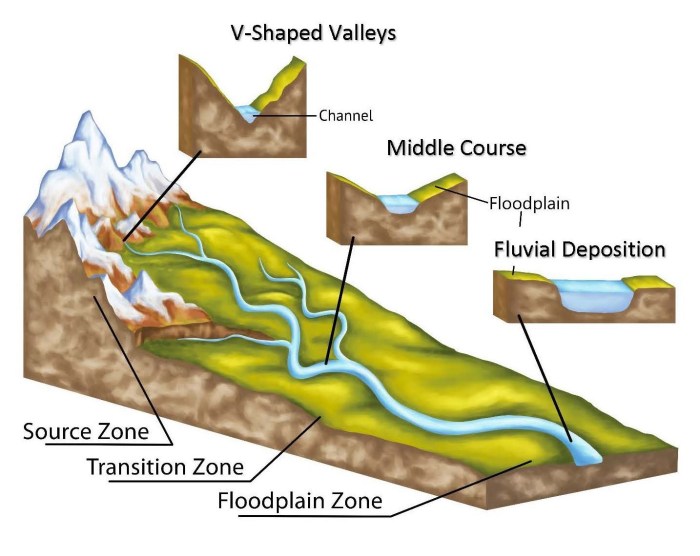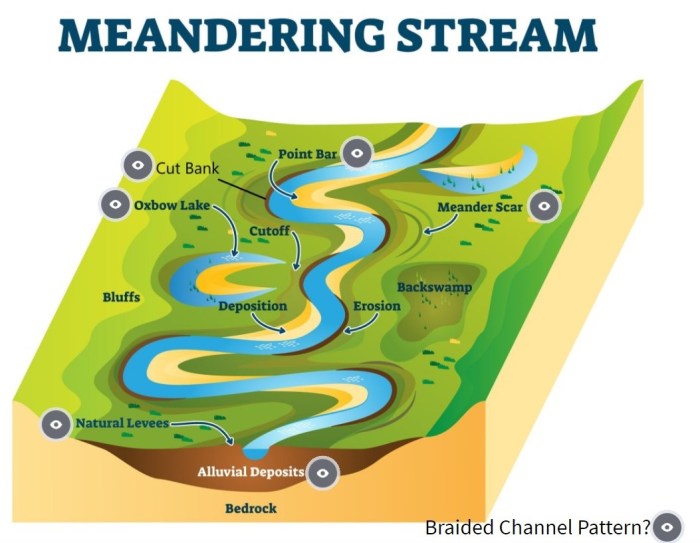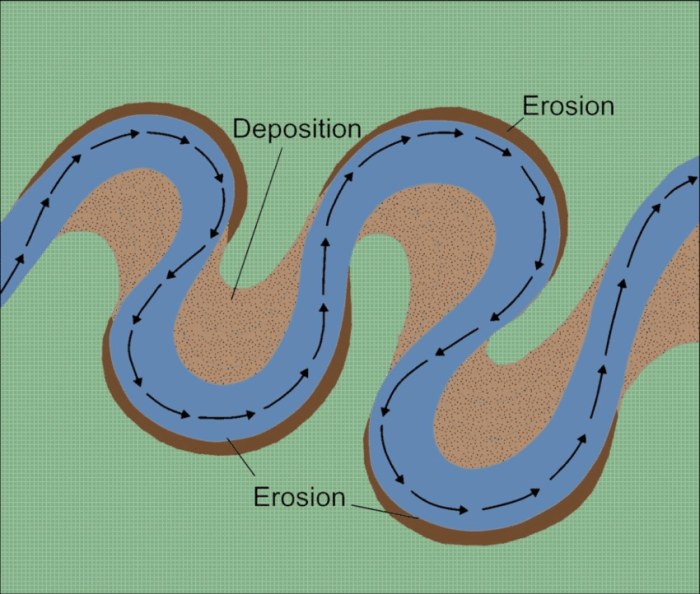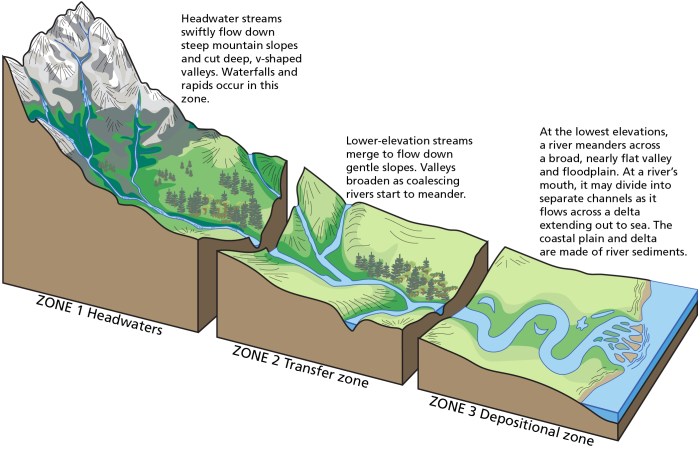What geologic process could have formed the channel on Mars? This intriguing question sparks an exploration into the enigmatic landscapes of the Red Planet, unveiling the intricate interplay of geological forces that have shaped its surface over eons. From the meandering channels etched by flowing water to the towering cliffs carved by glaciers, each geologic process leaves its unique imprint on the Martian terrain, providing tantalizing clues to its past.
As we delve into the realm of fluvial, glacial, volcanic, tectonic, and impact processes, we will examine the evidence that supports each hypothesis, comparing and contrasting their distinctive characteristics. Through a comparative analysis, we will piece together the most plausible explanation for the formation of the channel on Mars, shedding light on the dynamic geological history of our neighboring planet.
Fluvial Processes

Flowing water could have carved the channel through erosion. Water flowing over time can erode and transport sediment, creating channels. On Earth, fluvial processes have formed similar channels, such as the Grand Canyon.
Evidence supporting a fluvial origin for the channel on Mars includes the presence of sedimentary deposits and the channel’s meandering shape, which is characteristic of rivers.
Glacial Processes
Glaciers could have formed the channel through erosion and deposition. As glaciers move, they erode the underlying surface, creating channels. On Earth, glaciers have formed channels such as the U-shaped valleys in the Alps.
Evidence suggesting a glacial origin for the channel on Mars includes the presence of glacial deposits and the channel’s U-shaped cross-section.
Volcanic Processes

Volcanic activity could have created the channel through lava flows or pyroclastic flows. Lava flows can create channels as they move across the surface, while pyroclastic flows can erode and deposit material, forming channels.
Evidence supporting a volcanic origin for the channel on Mars includes the presence of volcanic features nearby and the channel’s steep walls.
Tectonic Processes: What Geologic Process Could Have Formed The Channel On Mars

Tectonic activity could have formed the channel through faulting or folding. Faults can create channels as they move, while folding can create channels by uplifting or downwarping the surface.
Evidence suggesting a tectonic origin for the channel on Mars includes the presence of faults and folds in the area.
Impact Processes
An impact event could have formed the channel through the force of the impact. Impact craters often have channels radiating from them, created by the ejecta from the impact.
Evidence supporting an impact origin for the channel on Mars includes the presence of an impact crater nearby and the channel’s radial shape.
Other Possible Processes

Other geological processes that could have formed the channel include wind erosion, groundwater sapping, and sublimation. Wind erosion can create channels through the removal of sediment, groundwater sapping can create channels through the dissolution of rock, and sublimation can create channels through the vaporization of ice.
Evidence supporting these processes is limited, and further research is needed to determine their role in the formation of the channel on Mars.
Question & Answer Hub
What is the most likely geologic process that formed the channel on Mars?
Based on the comparative analysis of evidence, the most likely geologic process responsible for forming the channel on Mars is fluvial processes, involving the erosive power of flowing water.
Are there any other potential geologic processes that could have contributed to the channel’s formation?
While fluvial processes are the most strongly supported hypothesis, other processes such as glacial, volcanic, tectonic, and impact events cannot be entirely ruled out. However, the evidence for these alternative processes is less compelling.
What are the key pieces of evidence that support a fluvial origin for the channel?
The presence of branching tributaries, meandering bends, and sedimentary deposits within the channel strongly suggests that it was formed by flowing water over an extended period.